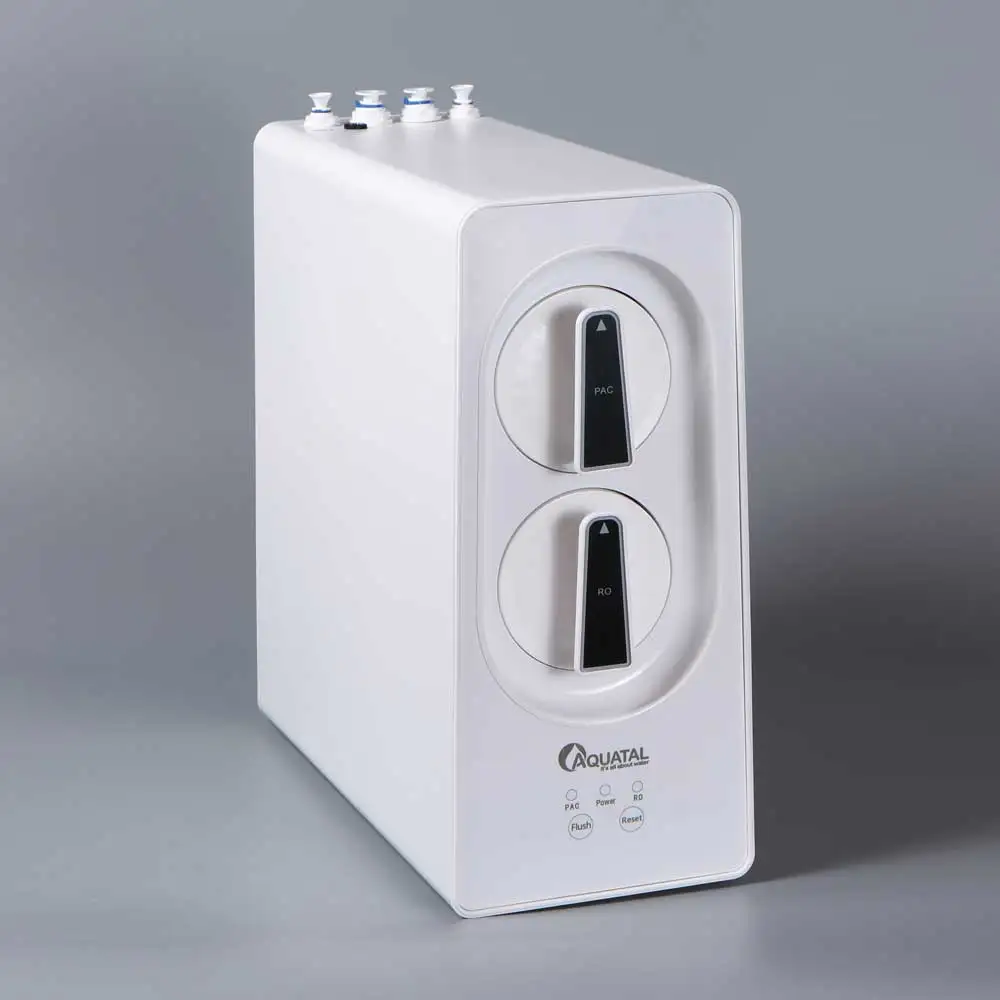Ways to Choose a Quality Water Purifier
Clean and safe drinking water is essential in the world today. AQUATAL water purifiers have become a common household item because they eliminate impurities and provide potable water. There are many options available on the market which makes it difficult to know what type of Water Purifier would be best for you. This guide aims at simplifying this process through highlighting some important aspects that need to be considered when selecting a good quality water purifier.

Understanding Different Technologies of Water Purification
To choose an effective water purifier, you should first understand the various technologies used in its purification process. Learning how each of these works can help one to determine which suits his or her needs best.
Reverse Osmosis (RO): It used a semi-permeable membrane that filters salts, heavy metals and other dissolved solids and contaminants from drinking water. Although it wastes much energy due to being powered by electricity, this method is very efficient against such waters.
Ultraviolet (UV) Purification: Ultraviolet rays kill bacteria and viruses effectively hence making them inactive or destroying their DNA structures altogether so they cannot reproduce any more, causing diseases among humans who consume infected fluids like untreated wells, without knowing about it until after some time has elapsed since exposure occurred. UV systems have low maintenance costs but don’t remove chemicals or dissolved solids.
Ultra-Filtration (UF): These units employ membranes similar to RO but with larger pore sizes that allow for removal of larger particles yet do not work against dissolved chemicals such heavy metals or substances. No electricity is required which is suitable for places where power supply may not be reliable.
Activated Carbon Filters: They are designed using activated carbons which absorb chlorine, pesticides and volatile organic compounds VOCs, improving taste and odor while leaving behind microorganisms or heavy metals unaffected.
Mixed Technology: Some modern AQUATAL purifiers combine two or more of these methods to offer a broad-spectrum of purification such as systems that combine both RO and UV techniques which can eliminate many types of contaminants effectively.
Features and Specifications Evaluation
Once you have known different technologies applied during water purification, the next step involves evaluating various features and specifications available in different models.
Water Quality: Examine source water quality by doing a test which shows level of impurities present. This will enable you select appropriate type based on those particular contaminants alone.
Storage Capacity: Determine how much storage capacity is needed for your family size so that all members can access clean drinking water whenever required within 24 hours. It should be made from non-toxic materials like food grade containers only.
Flow Rate: Consider desired flow rate or speed to produce safe potable liquid per minute (LPM). Higher rates are recommended for busier homes while lower one’s suit less occupied apartments where there may not be enough demand for such volumes over short periods.
Certification: Choose AQUATAL products with certifications from recognized bodies like NSF International, WHO, and WQA because they guarantee effectiveness since these agencies conduct independent tests before awarding any mark of approval.
Smart Features: Look out for filter change indicators, digital displays and mobile app connectivity that come with most smart water purifiers. These can add convenience but may not necessarily improve performance.
Energy Consumption: If an electrically operated cleanser is what you are opting for, evaluate its energy consumption. Usually, models having UV purification or RO membranes use more power. Find appliances which save electricity.
Service and Support: Go for AQUATAL that has good customer service and support. You can save on time and effort if service centers are easily accessible with available spare parts.
Warranty: A warranty can be useful in giving peace of mind. Check the duration it covers and what components are included.
Conclusion
To choose a good water purifier involves evaluating your specific needs and knowing what technology is there in the market. Observe and check features against specifications so that they align with desired requirements then factor in maintenance costs and other long-term expenses before making any decision about this matter. This way one will be able to buy an AQUATAL water purifier which produces clean safe drinking water for you and your family.

 EN
EN
 AR
AR
 BG
BG
 HR
HR
 CS
CS
 DA
DA
 NL
NL
 FI
FI
 FR
FR
 DE
DE
 EL
EL
 HI
HI
 IT
IT
 JA
JA
 KO
KO
 NO
NO
 PL
PL
 PT
PT
 RO
RO
 RU
RU
 ES
ES
 SV
SV
 TL
TL
 IW
IW
 ID
ID
 UK
UK
 VI
VI
 HU
HU
 TH
TH
 TR
TR
 FA
FA
 AF
AF
 MS
MS
 GA
GA
 AZ
AZ
 KA
KA
 BS
BS
 KK
KK
 KY
KY
